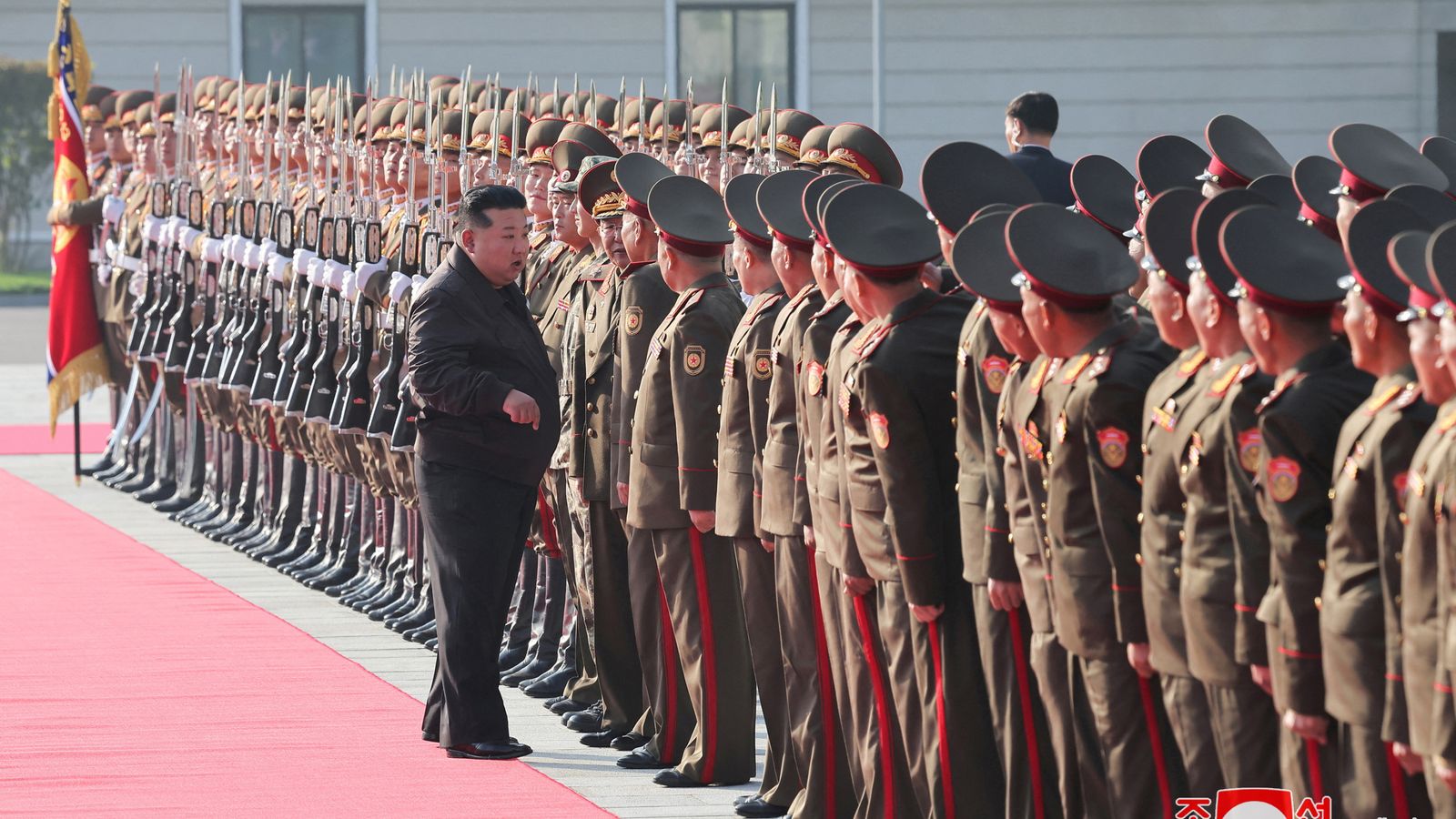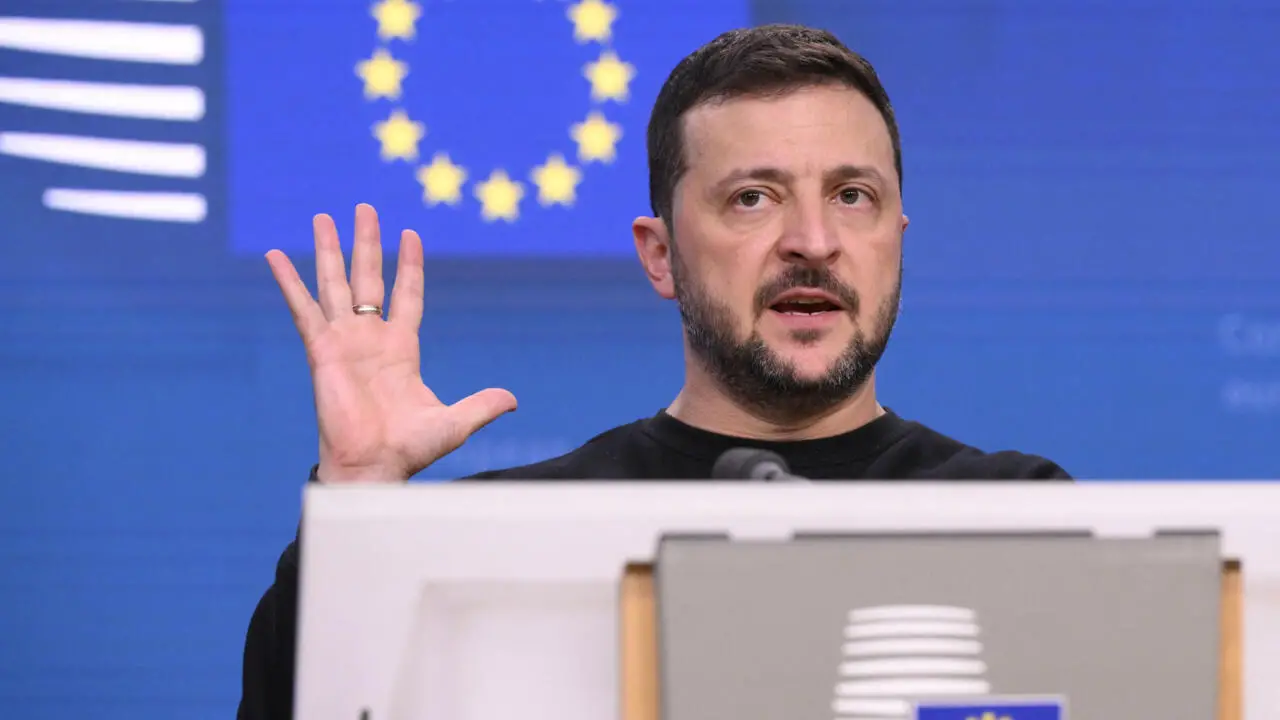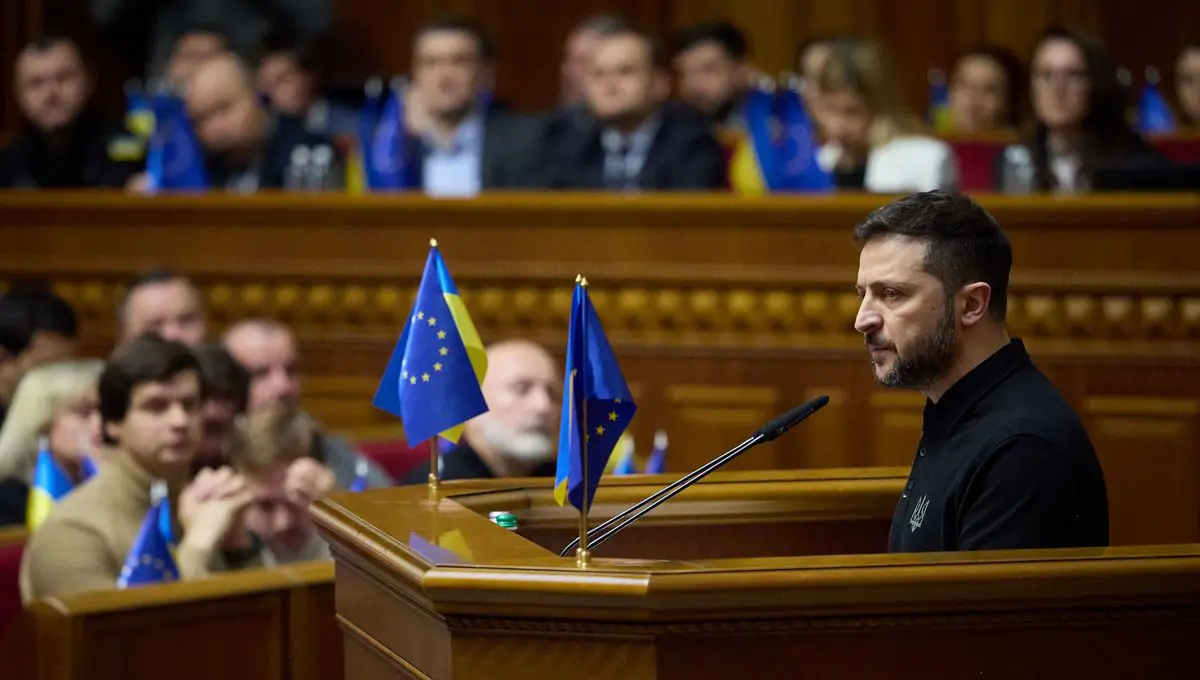The conflict in Ukraine has become a geopolitical flashpoint, drawing in nations and military alliances across the globe. Since Russia invaded Ukraine in February 2022, the war has escalated far beyond a regional confrontation between two nations, with rippling consequences for global security. What started as a territorial dispute now threatens to morph into a broader, more dangerous global conflict. As Ukrainian President Volodymyr Zelenskyy recently claimed, the deployment of North Korean troops to fight alongside Russia in Ukraine marks a pivotal escalation in the war.
According to Zelenskyy, North Korea is preparing to send 10,000 troops to Ukraine, with some North Korean officers already on the ground in Russian-occupied territories. This development, which Zelenskyy has described as the “first step to a world war,” signals a significant broadening of the battlefield, drawing in new players and complicating an already volatile conflict.
North Korean Involvement in Ukraine: A New Dimension in the War
President Volodymyr Zelenskyy’s revelation that North Korea is sending thousands of troops to fight alongside Russia in Ukraine has caused shockwaves in the international community. According to Zelenskyy, Ukrainian intelligence has confirmed that some North Korean officers have already been deployed to Russian-occupied territories, with as many as 10,000 additional soldiers being prepared for deployment. Although the U.S. and its Western allies have not yet fully verified these claims, they are treating them with utmost seriousness. The implications of such a development are far-reaching and could fundamentally alter the dynamics of the war in Ukraine.
The presence of North Korean troops in Ukraine would represent not only a new phase in the conflict but also a striking expansion of North Korea’s role on the global stage. Traditionally an isolated nation, North Korea’s involvement in a European war is a bold departure from its historical pattern of behavior. It signals a deepening relationship between Pyongyang and Moscow that could have serious consequences for regional and global security.

North Korea’s military is one of the most secretive and authoritarian forces in the world, but its capabilities are widely acknowledged. With a standing army of over one million troops, North Korea possesses a vast and disciplined land force, trained for asymmetrical warfare and hardened by decades of isolation and resource scarcity. While many of North Korea’s conventional weapons and equipment are outdated by modern standards, its soldiers are highly trained, loyal, and accustomed to difficult conditions. The country also has specialized forces skilled in sabotage, guerrilla tactics, and infiltration, which could be of significant use to Russia in the Ukrainian theater.
North Korea’s involvement in Ukraine would not only be limited to infantry forces. Zelenskyy indicated that North Korean “technical personnel” may also be deployed, which could include artillery specialists, engineers, and missile technicians. North Korea’s experience with long-range artillery and missile technology could bolster Russia’s firepower, particularly as both nations face sanctions that limit access to advanced Western military equipment.
The North Korea-Russia Axis: Strategic Cooperation Amid Global Isolation
The burgeoning military cooperation between North Korea and Russia is the culmination of a historically opportunistic relationship. During the Cold War, North Korea was a client state of both the Soviet Union and China, relying on Moscow and Beijing for economic and military support. However, with the collapse of the Soviet Union and China’s economic reforms, North Korea became increasingly isolated, turning inward under the leadership of Kim Jong-il and later his son, Kim Jong-un.
Despite this isolation, North Korea has always maintained ties with Russia, especially in the realm of military cooperation. In recent years, as Russia has faced growing international isolation due to its actions in Ukraine and other regions, it has turned to nations like North Korea for economic and military support. This partnership benefits both sides: Russia gains access to North Korea’s labor force, weapons, and now military personnel, while North Korea secures a powerful ally in its defiance of the international sanctions regime.
North Korea’s participation in the war in Ukraine signals a deepening of this relationship, with both nations seeking to shore up their positions in the face of mounting Western pressure. The Russia-North Korea axis, if fully realized, could have far-reaching implications for global security, as it represents the convergence of two authoritarian regimes with a shared interest in undermining the U.S.-led international order.
Both Russia and North Korea are heavily sanctioned by the international community, which has driven their growing cooperation. For Russia, the sanctions imposed after the 2014 annexation of Crimea, and especially after the 2022 invasion of Ukraine, have severely crippled its economy, particularly in the areas of finance, technology, and energy. Russia’s military-industrial complex has also been hit hard by restrictions on importing high-tech components, leading it to seek alternative suppliers for weapons, ammunition, and manpower.
North Korea, similarly, has been under stringent international sanctions for years due to its nuclear weapons program and human rights abuses. These sanctions have severely limited Pyongyang’s ability to trade with the outside world, forcing it to rely on illicit means to obtain resources and maintain its military apparatus. In this context, North Korea’s cooperation with Russia offers mutual benefits: Russia gets access to North Korean weapons and soldiers, while North Korea receives economic support and possibly advanced military technology from Russia.
The sanctions trap that both nations find themselves in has paradoxically driven them into a closer alliance, with each regime supporting the other in defiance of international norms. This cooperation poses a significant challenge to the global sanctions regime and raises the question of how the international community can effectively isolate these nations without inadvertently pushing them into more dangerous partnerships.

The Global Security Implications: Escalation Toward a Larger Conflict
President Zelenskyy’s characterization of North Korea’s involvement in Ukraine as the “first step to a world war” may seem hyperbolic at first glance, but there are legitimate concerns that this development could escalate the conflict beyond Ukraine’s borders. The involvement of North Korean troops in Ukraine would not only strengthen Russia’s position on the battlefield but also draw more countries into the fray, further complicating the already fragile geopolitical situation.
For NATO and Ukraine’s other Western allies, the presence of North Korean troops in Ukraine would represent a significant escalation. It would put pressure on NATO members to increase their own military support for Ukraine, potentially leading to more direct confrontations between NATO forces and Russian-backed troops. Additionally, it could embolden other authoritarian regimes to intervene in the conflict, either directly or through proxy forces, turning Ukraine into a battleground for competing global powers.
The broader concern is that the conflict in Ukraine, once viewed as a regional issue, could morph into a wider war involving multiple nations with competing interests. While the world has so far avoided direct military confrontation between nuclear powers, the involvement of North Korea—an unpredictable regime with nuclear capabilities—raises the stakes significantly. As the war in Ukraine drags on, the risk of miscalculation or unintended escalation grows, making the prospect of a larger global conflict more plausible.
The involvement of North Korean forces in Ukraine also highlights the shifting dynamics of global alliances. As traditional power structures weaken and new partnerships emerge, the balance of power is increasingly in flux. The North Korea-Russia alliance is just one example of how authoritarian regimes are banding together to resist Western pressure. Meanwhile, countries like China and Iran have also been drawn into the Ukraine conflict, albeit in more indirect ways, further complicating the geopolitical landscape.
For the United States and its allies, these developments present a critical challenge. The global security architecture that has existed since the end of World War II is being tested by the rise of authoritarianism and the weakening of international institutions. If nations like Russia and North Korea can act with impunity, using military force to achieve their goals without facing significant repercussions, it sets a dangerous precedent for future conflicts.
At the same time, the involvement of new players like North Korea forces the U.S. and its allies to reconsider their strategies. It is no longer just a matter of supporting Ukraine with weapons and financial aid; the conflict now requires a more comprehensive approach that addresses the broader geopolitical ramifications of a Russia-North Korea alliance.

A Call for Firm Action
The international response to North Korea’s involvement in Ukraine will likely center on calls for renewed sanctions and diplomatic efforts to isolate both Pyongyang and Moscow. The United Nations, already engaged in sanctions against North Korea for its nuclear program, will face pressure to impose further penalties, particularly if North Korean troops are confirmed to be fighting in Ukraine. However, the efficacy of these measures remains in question, given the resilience of both regimes to international pressure and their ability to find alternative means of support.
International law also provides a framework for holding nations accountable for their actions in war, but enforcing these laws against regimes like North Korea and Russia is notoriously difficult. The International Criminal Court (ICC) has already launched investigations into potential war crimes committed by Russian forces in Ukraine, but the inclusion of North Korean troops in these crimes would further complicate the legal proceedings. Nonetheless, the international community must pursue all available avenues to hold both Russia and North Korea accountable for their actions.
In the face of escalating tensions, strengthening global security alliances will be essential to maintaining peace and stability. NATO’s continued support for Ukraine will be critical in deterring further Russian aggression and preventing the conflict from spreading beyond Ukraine’s borders. The U.S. and its allies must also work closely with countries in the Indo-Pacific to counterbalance the growing influence of the North Korea-Russia axis.
Additionally, more robust intelligence-sharing and military coordination among Western nations will be necessary to anticipate and respond to any new threats posed by the involvement of North Korean forces in Ukraine. The inclusion of such an unpredictable actor in the conflict underscores the need for constant vigilance and adaptability on the part of global security organizations.
The Precarious Path Ahead
The involvement of North Korean troops in Ukraine marks a dangerous new phase in the conflict, one that could have catastrophic implications for global security. What was once a regional war between Russia and Ukraine is rapidly evolving into a more complex and global confrontation, with new players entering the fray and alliances shifting in unpredictable ways. President Zelenskyy’s warning that this could be the “first step to a world war” serves as a stark reminder of the fragility of the current geopolitical landscape.
As the war in Ukraine grinds on, the risk of escalation grows, and the international community must act decisively to prevent the conflict from spiraling out of control. Whether through diplomacy, sanctions, or military support, the world must come together to address the root causes of the war and work toward a sustainable peace. The path ahead is fraught with danger, but with concerted effort and cooperation, it may still be possible to avoid the worst-case scenario.



